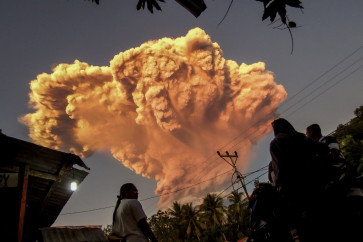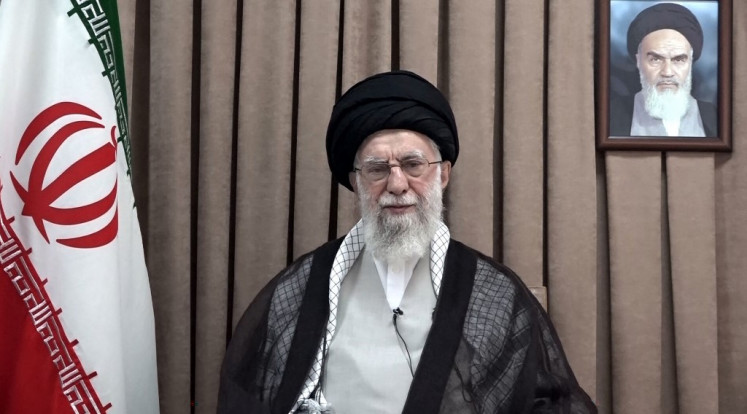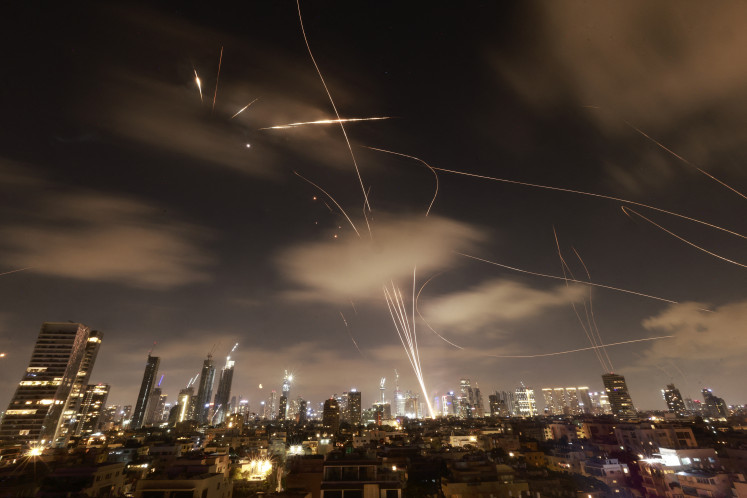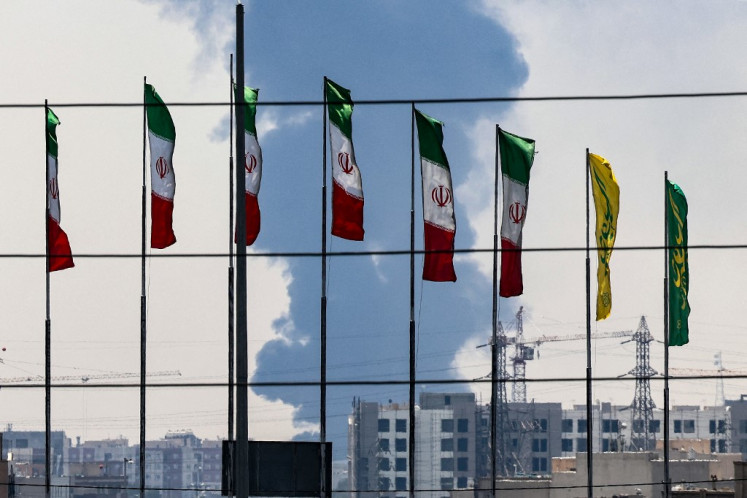Popular Reads
Top Results
Can't find what you're looking for?
View all search resultsPopular Reads
Top Results
Can't find what you're looking for?
View all search resultsAbuse in Catholic Church: Alleged victims face silence, denial
Change text size
Gift Premium Articles
to Anyone

V
ictims of alleged sexual abuse and harassment in the Indonesian Catholic Church face “thick walls” of silence, secrecy and denial, having to bear their trauma while the accused priests remain on a moral pedestal.
Sisca, who has chosen to use an alias to protect her privacy, said she was molested by a Catholic priest in Jakarta when she was 11 years old.
Now 38, she watches the same priest greet school children in the same Catholic school every morning, and in December of last year, she heard His Eminence Ignatius Cardinal Suharyo, the highest-ranking member of the Indonesian Catholic Church, deny that he had ever received any reports of sexual abuse in the Church.
“It hurts me to hear him say that. He doesn’t know how it feels,” Sisca told The Jakarta Post in early February
Since January of this year, the Post and Tirto.id have interviewed four victims — one man and three women — who say they were sexually abused by priests of the Catholic Church. The events they described took place between 10 and 30 years ago. Three of the victims were minors, and one was an adult. Three never reported the abuse to authorities and the other faced silence when she reported her case and demanded that the priest she had accused be punished.
Last December, in the cardinal’s first rebuttal of the sexual abuse allegations, he accused his subordinate in the Bishops Council of Indonesia (KWI), seminary commission secretary Father Joseph Kristanto, of “violating the code of ethics” by discussing, in a public forum, 56 cases of alleged sexual abuse within the Catholic Church.
The cardinal reiterated his stance in his reply to the Post and Tirto.id’s request to interview him about the sexual abuse cases and the progress of the protocols.
“The issue related to sexual harassment, I really don’t know — if what you mean is the [case] reported by one of the parish publications,” Suharyo wrote.
Suharyo was referring to a report in Warta Minggu, a publication written by members of the Maria Bunda Karmel parish in Jakarta, published on Dec. 8, 2019. The report, titled “Sexual Abuse in Indonesian Churches: An Iceberg Phenomenon?”, quoted Father Kristanto’s presentation at the seminar on the book about abuse protocols.
The Archbishop of Jakarta declined to grant the Post and Tirto.id an interview and recommended another priest, Petrus Sunu Hardiyanta, who Suharyo said knew more about the protocol than he did.
In an interview on July 23, Father Sunu, a Jesuit provincial head from 2014 to May of this year, did not confirm the data and only commented that the cases Father Kristanto had brought up were supposed to be “confidential”.
He verified that none of the dioceses, archdioceses or orders in Indonesia had established the protocols, even though Pope Francis’ deadline of June of this year had passed.
In addition to Father Suharyo and Father Sunu, the Post and Tirto.id tried to contact five priests in Indonesia – heads of parishes and orders – to verify the accounts of three victims. Of the five priests, one said he had heard about the cases but claimed he did not know the details, two said they did not know of the cases and two never replied.
Sister Chatarina Supatmiyati, in a discussion organized by Katolikana, a media outlet focusing on news related to the Catholic Church, said she had helped a number of women who had become involved with Catholic Church priests and parish officials. She said some of them had gotten pregnant and had to raise the children on their own.
When she accompanied women and reported their situations to the church, the church officials accepted the reports and listened but nothing more.
Activists Mike Verawati Tangka and Damairia Pakpahan, who have acted as advocates for alleged sexual abuse victims in the Catholic Church, said the cardinal should have pursued the cases instead of denying them.
The two women said the “thick walls” of impunity for perpetrators of sexual abuse and harassment within the institution were “absurd”. Usually, the Catholic Church would simply transfer accused clerics from one parish to another, where they could repeat their abuse or unethical behavior.
They referred to the well-publicized case of the former bishop of Ruteng, Hubertus Leteng, who was assigned to the Bandung Diocese after his resignation from his seat in Ruteng amid accusations that he had embezzled money and had an affair with a woman. Another case was a priest in North Central Timor regency who was moved to another parish after allegedly mistreating a woman, prompting anger from a congregation member, author Felix Nesi, who later damaged parish property.
Both Mike and Damairia demanded transparency in the Indonesian Catholic Church in dealing with unethical or coercive behavior and sexual assault instead of sweeping such actions under the rug. “But some Church leaders, including the cardinal himself, seem to deny and negate the findings. They even tend to cover up the case,” Mike said.
Sister Chatarina said the women she accompanied had to accept that the priests would continue as priests in other places while the women relented, lived alone with their children and faced censure from the community they lived in.
“This is the injustice,” she said.
-- Karina M. Tehusijarana contributed to this story.









